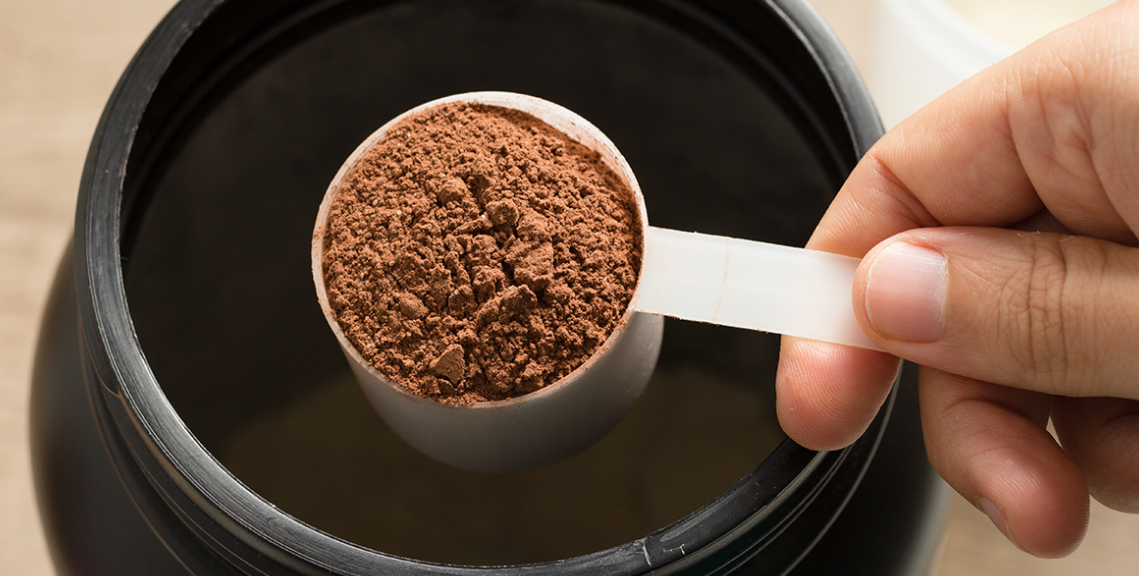Protein powder is a popular supplement for people trying to build muscle and lose weight. But what does it actually do?
Firstly, a bulk protein powder is simply concentrated protein that can be mixed with water or milk and consumed to increase your daily protein intake. You can also refer to it as an essential macronutrient that aids in the development and restoration of muscles and other tissues in the body. You can find many different types of protein powders on the market, but most are made from whey or soy proteins, which are both derived from dairy products. There are also plant-based proteins made from hemp, chia seeds and peas.
How much protein should I take each day?
The amount of protein recommended depends on your age and activity level. According to the National Health Service (NHS), men should consume at least 0.8 grams of protein per kilogram of body weight per day (0.36 grams per pound). Women should aim for 0.8 grams per kilogram (0.36 grams per pound) each day as well, although pregnant women should aim for 1 gram per kilogram (0.45 grams per pound).
Who Can Use a Protein Powder?
Protein powder is a great way to help you meet your daily protein requirements. But it’s not just for weightlifters and bodybuilders. Protein powders are also great for anyone looking to boost their nutrition and health.
These powders are made from different materials, including whey, casein, or soy sources. Each type offers different benefits and should be used based on your needs. Here’s what you need to know about each type:
Whey Protein
Whey protein is a complete source of protein that has been broken down into smaller parts called peptides and amino acids that are easy for the body to digest. This makes it a popular choice among athletes and fitness enthusiasts because it can be absorbed quickly by the body for muscle growth and repair after exercise.
Soy Protein
Soy protein comes from soybeans, which contain all nine essential amino acids needed by humans. Like whey, soy also provides branched-chain amino acids (BCAAs), which are essential building blocks of muscle mass. BCAAs are also known as leucine, isoleucine, and valine.
Who should not use a protein powder?
People with certain medical conditions should avoid using protein powders because they may worsen their symptoms or cause other problems. The following groups should not use a protein powder:
- Anyone with an allergy to milk or milk products. People who are lactose intolerant may experience stomach cramps or diarrhea after consuming milk products.
- People with diabetes or hypoglycemia (low blood sugar) should consult their doctor before using any type of supplement that contains sugar. Proteins contain varying amounts of sugar and carbohydrates, which can affect blood sugar levels in people with diabetes or hypoglycemia.
- Women who are pregnant or breastfeeding should avoid using any type of supplement without first consulting their doctor because some supplements have been linked to birth defects and other health problems in infants born to mothers who used them while pregnant.
Conclusion
Training and recovery is important to triumph over toughest obstacles. One of the ways in which you can achieve these goals and overcome your limits without fail is through the protein supplements. However, the world of protein supplements is very broad, with various brands and types of shakes claiming to be the best for your body and training goals. But do those claims hold a truth?
The thing to consider is that the potential risk and benefit of protein powder "depend on usage." So, if you decide you're going to use it, be sure that you understand what you're taking and take it as directed. There is no harm in having a protein powder supplement in your fridge of all places, but there's also no need to have a five-ton truck load of supplements enter your diet. Be smart people and make sure that your decision is worth it.


